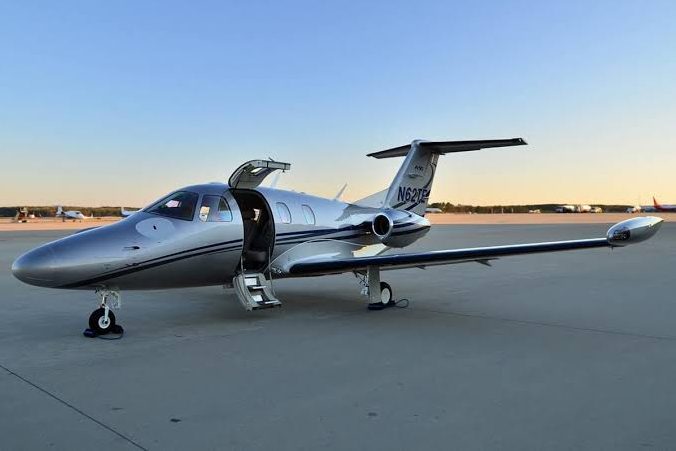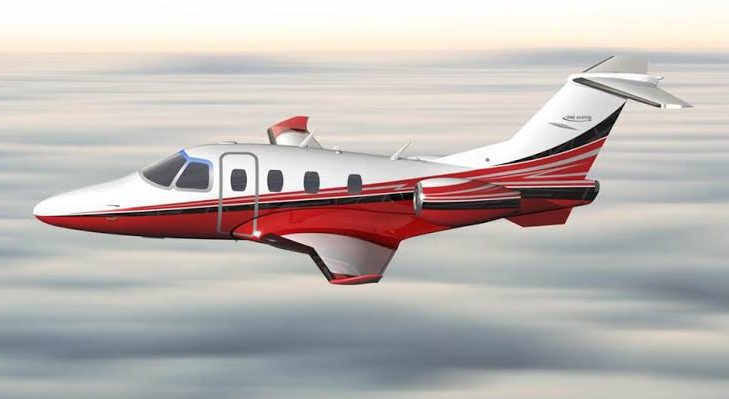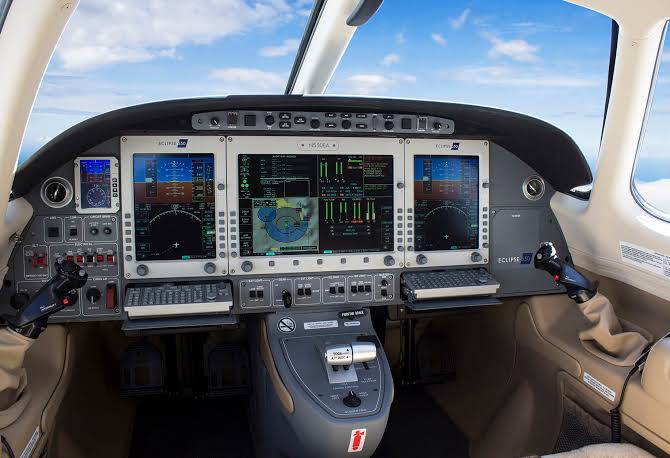Private Jet Auctions: A New Way to Buy and Sell Eclipse 550 Aircraft
Welcome to the future of private aviation transactions—the world of Eclipse 550 aircraft auctions. This cutting-edge approach is revolutionizing the buying and selling process, offering a unique blend of excitement and entrepreneurship in the very light jet market. Gone are the days when securing a private jet was limited to broker-assisted transactions or direct sales. Enter the dynamic realm of online and live auctions, enabling potential owners to acquire or offload an Eclipse 550 aircraft with efficiency and transparency. In the subsequent sections, we’ll delve into everything from preparing your jet for auction to understanding the legal and financial aspects of these transactions. Whether you’re a prospective buyer, an existing owner, or an aviation enthusiast, strap in as we lift the veil on the world of private jet auctions tailored for the Eclipse 550 aircraft.
Introduction to Eclipse 550 Aircraft
The Eclipse 550 is a pioneer in the very light jet market segment. This segment of the aviation sector delivers speed, efficiency, and luxury, blending the best of commercial air travel and private aviation.
Key Features and Specifications
The Eclipse 550 is equipped with numerous remarkable features that distinguish it from the crowd. These features work together to ensure your travel is swift and comfortable.
- Performance and range: The Eclipse 550 boasts a cruise speed of 375 knots and a range of 1,125 nautical miles. This allows for non-stop travel to a multitude of destinations, saving you precious time.
- Interior amenities: The aircraft features plush leather seats, a private lavatory, and an impressive noise-reduction system for ultimate comfort. Its cabin is also equipped with a cutting-edge Avio integrated flight management system for enhanced safety.
- Efficiency: The Eclipse 550 is renowned for its fuel efficiency, consuming nearly 59 gallons per hour. In terms of operating costs, it is one of the most economical options on the market.
Market Position in the Very Light Jet Category
The Eclipse 550 commands an exceptional position within the very light jet category. Due to its unique mix of efficiency, performance, and luxury, it has been awarded numerous accolades, including being dubbed ‘The Most Economical Twin-Engine Jet in the World’. Its popularity among businesses, private users, and aviation enthusiasts is a testament to its capabilities. This trend has led to a steady demand for the aircraft on both the direct sale and auction markets.
In the next sections, we’ll explore how the traditional methods of buying and selling the Eclipse 550 are gradually being surpassed by the rise of private jet auctions, a fascinating development in the aviation industry.
Traditional Methods of Buying and Selling Eclipse 550 Jets
In the past, there have traditionally been two major methods to facilitate the exchange of private aircraft like the Eclipse 550 jet: broker-assisted transactions and direct sales. These techniques continue to serve as popular routes for both buying and selling these high-end jets.
Broker-Assisted Transactions
Broker-assisted transactions have been, for many years, the most popular and trusted method of buying and selling private jets, including the Eclipse 550. This traditional method involves a specialized aircraft broker who will act as an intermediary to facilitate the process.
The broker provides a range of services, including appraising the aircraft’s value, marketing the aircraft to potential buyers, arranging for inspections, and negotiating the final sale price. This method allows sellers to maximize exposure to potential buyers and ensure their aircraft is presented in the best possible light.
Buyers also benefit greatly from broker-assisted transactions. They gain access to a broker’s expertise in identifying suitable aircraft in line with their specific requirements, evaluating the jet’s condition and worth, and navigating complex negotiations and contractual obligations.
Direct Sales Between Owners and Buyers
Direct sales between owners and buyers are another traditional yet less common method for Eclipse 550 transactions. This is a sale made without any intermediaries or brokers—it’s a direct deal between both parties.
Owners might prefer this method as it eliminates broker commissions, which can be significant given the high value of an aircraft like the Eclipse 550.
For buyers, direct sales present an opportunity for a more personal evaluation of the aircraft and direct interaction with the previous owner. They can also often negotiate more flexible payment terms.
However, this transaction method requires a profound knowledge of the aviation market to ensure a fair deal. Both buyer and seller must be willing and capable of handling each stage of the transaction, from pre-purchase inspections to the final sale documentation.
Despite their long-standing history, both these traditional methods of buying and selling Eclipse 550 jets face significant challenges. Broker-assisted transactions often involve high commission fees and lengthy timeframes, while direct sales require significant aviation knowledge and can involve high risks. As a result, many are now turning to a new route for these transactions—private jet auctions.
The Rise of Private Jet Auctions
In recent years, private jet auctions have gained momentum in the aviation industry, offering a novel twist to the conventional ways of transacting aircraft. This emerging trend is significantly reshaping the dynamics of buying and selling executive jets like the Eclipse 550.
Factors Driving the Trend
Several factors are propelling the adoption of auctions in the private jet market. First, the demand for Eclipse 550 and other luxury jets has grown significantly, driven by the increasing wealth of high net-worth individuals and the convenience and safety they deliver. Secondly, auctions offer a more efficient, cost-transparent, and time-saving process compared to traditional sales, stimulating both buyers and sellers to favor this approach.
Technological advancements also play a pivotal role in this rising trend. With digital auction platforms emerging, participants can now easily engage in the bidding process regardless of their geographical location. This online trend removes barriers inherent in traditional, location-specific auctions and opens the process to a wider audience of global bidders.
However, perhaps most prominently, the shift towards auctions can be attributed to the transformative effect they exert on market expectations. Rather than accepting predetermined prices, auctions force the market to define the value of an aircraft, thereby leading to more market-driven pricing dynamics.
How Auctions Differ from Traditional Sales
In contrast to traditional sales methods, which are often time-consuming with lengthy negotiations, auctions can reach a sale decision in a much shorter time frame. For an Eclipse 550 seller, this can represent a considerable advantage, providing a faster route to liquidity.
Besides efficiency, auctions are characterized by their transparency. In a traditional private jet sale, price information is often only visible to the buyer and seller, and the closed nature of such deals can lead to price distortions. However, in public auctions, all active bidders have visibility of the current price, which helps to ensure that the final selling price of the Eclipse 550 truly reflects its current market value.
Another key difference lies in the market reach. Traditional sales may occur within a broker’s limited network or depend on local demand. In contrast, auctions, particularly online ones, effectively widen the pool of potential buyers to an international audience.
In a nutshell, the growing preference for Eclipse 550 jet auctions is rooted in their transparency, efficiency, and the compelling opportunities they offer to both buyers and sellers alike. As the private jet market continues to evolve, auctions are expected to be significant catalysts in shaping its future.
Types of Eclipse 550 Auctions
The method of acquiring an Eclipse 550 aircraft has evolved significantly with the rise of technology. Auctions have become a popular platform where buyers and sellers negotiate deals. This chapter will explore the various types of auctions applicable for buying and selling the Eclipse 550 aircraft.
Online Auctions
The digital revolution has significantly affected the aviation industry. One such impact is the emergence of online auctions. The Eclipse 550, a high-demand jet in the aviation market, is often sold in online auction platforms. These platforms offer a seamless and efficient channel for auctioning aircraft, allowing participants to engage from anywhere around the world. Potential buyers simply need to register, fulfill necessary conditions, and they can start bidding. Sellers, on the other hand, have the opportunity to present their Eclipse 550 to a wider audience. The transparency and straightforward process of online auctions have made them a popular choice for many aviation enthusiasts.
Live Auctions at Aviation Events
Despite the rise of digital solutions, live auctions at aviation events continue to play a significant role in the sale of aircraft. These events serve as a platform for networking, displaying new models, and auctioning aircraft like the Eclipse 550. Buyers have the chance to physically inspect the aircraft before bidding, which is a priceless advantage not offered in online auctions. These events also provide an electrifying atmosphere where auctioneers volley bids in real-time, adding to the thrill of the auction.
Hybrid Auction Models
To capitalize on the best of both worlds, hybrid auctions have been developed. These models combine the accessibility and convenience of online auctions with the thrill and tactical edge of live auctions. For instance, an Eclipse 550 aircraft might be listed online for initial bidding. It builds anticipation before the live auction stage where the jet will ultimately be sold. This two-stage approach helps to create a competitive environment that can ultimately drive the price incrementally higher.
Thus, the ever-growing concept of auctioning has paved the way for diverse methods tailored to cater to every buyer’s and seller’s needs. The online, live, and hybrid auction models all provide unique advantages, which participants can leverage depending on their preference. As proven techniques, these models continue to drive the sale of the Eclipse 550, transforming aircraft transaction methods in the aviation industry.
Preparing an Eclipse 550 for Auction
When it comes down to preparing an Eclipse 550 for auction, there are two major steps every seller should consider: undertaking pre-auction inspections and maintenance, and crafting an attractive auction listing.
Pre-Auction Inspections and Maintenance
The key to selling an Eclipse 550 aircraft—or any private jet for that matter—at auction is ensuring that the aircraft is in peak condition, both aesthetically and mechanically. Indeed, performing a thorough pre-auction inspection is a prerequisite that can’t be overlooked.
Potential buyers typically place a high emphasis on the aircraft’s maintenance records and history, as these provide insights into how diligently the aircraft has been kept and ultimately, its current state. Therefore, it would be advantageous to enlist an independent certified aircraft mechanic or an authorized maintenance center for a comprehensive inspection.
Recommended pre-auction upkeep for the Eclipse 550 includes verifying the functionality of key specifications, like the twin PW610F Turbofan engines and the Avio Integrated Flight Management System, along with other routine checks. Consider having the interior and the exterior cleaned and refurbished if required—first impressions count, especially when comprehensive photographs are part of your auction listing!
Creating Compelling Auction Listings
Once your Eclipse 550 is in top-notch condition, the next step is to create compelling auction listings that highlight the unique selling propositions of the aircraft. A strong listing typically includes high-definition photos of the interior and exterior of the aircraft, focusing on any visually appealing features and upscale modifications that would appeal to potential buyers.
In addition to visual elements, make sure to provide an extensive description of the aircraft. You should include its manufacturing year, total flight hours, key specifications and features, maintenance history, and any other relevant information that provides a comprehensive overview of your Eclipse 550.
Potential buyers will likely appreciate an honest and transparent listing—that means highlight not only the jet’s appealing features but also disclosing any recent repairs or ongoing maintenance.
Creating an attractive auction listing for your Eclipse 550 takes time and effort, but it’s a crucial step in generating interest and, ultimately, landing the highest possible bidding price. It’s all about presenting your jet in the best possible light while providing all necessary details for buyers to make an informed decision.
Buyer’s Guide to Eclipse 550 Auctions
Investing in a private jet like the Eclipse 550 is undoubtedly a major financial decision, so having a solid buying strategy is most definitely crucial. This guide will provide insight into how potential buyers can perform their due diligence and understand the terms and conditions that are commonplace in private jet auctions.
Research and Due Diligence
Researching an Eclipse 550 aircraft before placing a bid at an auction provides the buyer with useful insights that can inform their bidding strategy. First, determine the current market value of the aircraft, considering factors such as its age, total flight hours, condition, upgrades, and maintenance history. You may find these details in the aircraft listing, or you can request a full disclosure from the seller.
For a more detailed assessment, hiring an aviation maintenance expert to conduct a pre-buy inspection is highly advisable to determine the aircraft’s mechanical functionality and evaluate potential long-term maintenance costs.
In addition to the aircraft itself, it’s crucial to conduct due diligence on the auction house. Look for information like the company’s track record, its duration in the business, and feedback from past participants. These measurements can help gauge the auctioneer’s credibility and effectiveness.
Understanding Auction Terms and Conditions
Understanding the auction terms and conditions is another key area that buyers must pay close attention to. All auction houses have specific rules that potential bidders must follow, and neglecting to familiarize yourself with these can potentially lead to costly misunderstandings.
Typical elements contained in auction terms and conditions include registration requirements, buyer’s premiums, payment terms, and delivery details. For instance, the buyer’s premium is an additional charge on the winning bid, which goes to the auction house for its services. Further, payment terms will specify acceptable forms of payment and deadlines for payment completion after winning a bid.
Remember, once you place a bid on an Eclipse 550 aircraft in an auction, you enter a legally binding contract. Failing to comply with the terms and conditions may result in severe legal and financial repercussions. Thus, if any elements of the conditions are unclear, seek legal counsel before participating in the auction.
Navigating the auction world can seem like a daunting process initially, but with careful research and thorough understanding, you can secure a great deal on an Eclipse 550 and add a valuable asset to your portfolio.
Seller’s Strategy for Eclipse 550 Auctions
Taking part in a jet auction requires strategic planning and expert execution to achieve the best outcome. To effectively sell an Eclipse 550 aircraft through an auction, understanding the process of setting reserve prices and marketing the aircraft to potential bidders are key steps.
Setting Reserve Prices
The declaration of a reserve price is one of the most critical steps for sellers in an Eclipse 550 auction. The reserve price is the minimum price a seller is willing to accept for the aircraft. It serves as a safety net, protecting sellers from selling their aircraft at a loss.
A well-calculated reserve price takes into account the current market value of the Eclipse 550, the aircraft’s condition, and its unique features. If desired, sellers can collaborate with experienced aviation brokers or appraisers to set a reasonable and appealing reserve price.
Considerations when setting this stipulated amount are:
- Market Trends: Keep an eye on selling price trends of comparable Eclipse 550 jets. Financial and market analyses offer valuable insights into the ideal reserve price.
- Aircraft Condition: Aircraft with recent upgrades or superior maintenance records can command a higher reserve price.
- Auction Atmosphere: A competitive auction environment can encourage bidders to exceed the reserve price.
Sellers must remember not to set the reserve price too high as it discourages potential buyers. At the same time, setting the price too low may result in a suboptimal sale. The goal should be to strike a balance, setting a price that reflects the aircraft’s true value while remaining attractive to bidders.
Marketing Your Eclipse 550 to Potential Bidders
Reaching potential buyers and enticing them to bid on your Eclipse 550 can be a challenging task. The use of various marketing techniques is crucial to standing out in the crowded aviation market.
- High-Quality Photos and Videos: Visual representation of the aircraft can significantly impact a potential buyer’s interest. Detailing the interior, exterior, and unique features of the Eclipse 550 with high-quality photos and videos can draw bidders’ attention.
- Detailed Information: Providing comprehensive information about the aircraft’s history, technical specifications, upgrades, and maintenance record can build trust among potential buyers. This transparency can influence bidding positively.
- Targeted Promotion: Leveraging online platforms, aviation forums, social media, or specialist publications to promote your Eclipse 550 can expose your listing to a wider audience. If you’re working with a broker, ensure they’re promoting your aircraft to their network of clients and industry contacts.
- A Compelling Description: Draft a creative and compelling description of your Eclipse 550, highlighting its standout features, performance capabilities, and any additional enhancements installed.
An effective marketing strategy in conjunction with a reasonable reserve price increases the likelihood of selling your Eclipse 550 at a favorable price during auctions. Prior planning and a comprehensive approach can significantly streamline the process and ensure a satisfying auction experience.
The Auction Process for Eclipse 550 Aircraft
Navigating the auction process for an Eclipse 550 aircraft can be a thrilling journey, brimming with anticipation and excitement. It encompasses two vital aspects – registration & qualification and implementing effective bidding strategies & techniques.
Registration and Qualification
The first step towards buying an Eclipse 550 aircraft at an auction is registration. Prospective buyers must register with the auction platform or the auction house conducting the event. This process typically involves providing necessary identification and financial information to confirm their eligibility to bid.
To qualify for bidding, potential bidders might also be required to provide proof of funds. This ensures that only serious bidders participate in the auction process, effectively minimizing the chances of non-completion of transaction post-auction. The requirement varies between auction houses; some may necessitate a deposit amount, while others may need a bank guarantee.
Registration and qualification foster transparency in the auction process. Plus, they offer a level playing ground for interested parties, whether they are veteran aviation investors or newcomers to the field.
Bidding Strategies and Techniques
Once registration and qualification are out of the way, it’s time to devise intelligent bidding strategies. It’s where buyers’ understanding of Eclipse 550 aircraft and its market value becomes crucial.
A common tactic used by many bidders is to set a maximum bid limit for themselves based on their budget and the plane’s estimated market value. It prevents them from getting carried away in the heat of bidding and overpaying.
One strategy often deployed is proxy bidding for online Eclipse 550 auctions. It allows bidders to set their maximum bid limit upfront, and the platform auto-bids on their behalf until this limit is reached.
Another effective technique in live auctions is reading the room and observing the competition. Seasoned bidders often watch for signs of reluctance or hesitation from other bidders to determine the right time to place their bid.
Moreover, staying patient and calm can pay off significantly in an Eclipse 550 aircraft auction. Bidders who wait for the initial frenzy to subside can often spot and seize opportunities that others might overlook.
In conclusion, the auction process for Eclipse 550 aircraft is a meticulous combination of formalities and strategy. With a clear understanding of the process and some well-thought-out approaches, prospective buyers can look forward to adding this very light jet to their fleet in a cost-effective and efficient manner.
Legal Considerations in Eclipse 550 Auctions
Participating in an auction for an Eclipse 550 jet involves navigating specific legal considerations. These considerations exist to protect the integrity of the auction process, as well as the rights and interests of both buyers and sellers.
Contract Formation and Enforcement
A crucial legal aspect of any sale, including an auction of an Eclipse 550 aircraft, is the formation and enforcement of a legally binding contract. When a bid is placed at an auction, and the auctioneer accepts the bid, a contract is immediately formed. This contract obligates the buyer to purchase the jet at the bid price and the seller to transfer ownership to the buyer.
Ensuring the enforcement of this contract can sometimes be complex. Both parties must have the legal capacity to enter into a contract and the contract terms must be clear, fair, and legally enforceable. As a prospective bidder or seller, it’s essential to understand the nature of the contractual obligations tied to the auction, possible penalties for a breach, and recourse options in the event of contractual disputes. Legal counsel is often beneficial to navigate these complexities.
International Sale Regulations
If the buyer and seller are from different countries, international sale regulations also come into play. Compliance with these regulations is necessary for a legal and smooth transfer of ownership. Such regulations usually encompass import and export laws, aircraft registry transfers, and payment of customs duties and taxes. For instance, if an Eclipse 550 jet is to be flown out of its current jurisdiction, permissions may be required from aviation authorities.
Additionally, there can be legal requirements involving the aircraft’s airworthiness certificates, maintenance record documentation, and necessary disclosures concerning the aircraft’s condition. Since regulations can change across countries, it is advisable for both parties in the auction to familiarize themselves with the rules prevailing in the jurisdictions involved.
In conclusion, while the auction process can offer an exciting way to buy or sell an Eclipse 550, it’s essential that participants consider these legal aspects. By doing so, they can ensure a successful, fair, and legally compliant transaction.
Financial Aspects of Eclipse 550 Auctions
Any transaction of high-value items such as an Eclipse 550 private jet requires rigorous financial planning and considerations. This is especially true when the transaction takes place via an auction, which carries its own set of complexities. Let’s break down two key areas of focus: Financing options for auction purchases and payment and escrow services.
Financing Options for Auction Purchases
Buying an Eclipse 550 jet at auction can be an exciting experience, but it can also be financially taxing if not planned properly. Bidders must have a clear understanding of the financial commitment involved. It’s essential to note one crucial distinction – auctioning houses or platforms usually require immediate payment, or at least a substantial deposit, once the hammer falls.
However, various financing options can ease the process. For instance, taking out a loan or leveraging assets are common ways to procure funding. Additionally, some specialized financial institutions cater specifically to the aircraft industry, offering tailored aviation financing solutions.
A potential purchaser of an Eclipse 550 may also seek a pre-approved loan to ensure ready funds. This adds a layer of security to their bid, helping them avoid the risk of losing out on an aircraft due to delayed financing.
Payment and Escrow Services
The payment process in aircraft auctions should be seamless, secure, and transparent. One popular method is using an escrow service, which acts as an impartial third party to secure the funds until the transaction is complete.
Escrow services provide both the buyer and seller peace of mind throughout the complex process of buying an Eclipse 550 at auction. They offer protection for the buyer by holding the funds in a secure account until the terms of the sale are met, and likewise, the seller is assured that the buyer has the required funds.
Upon conclusion of the auction, the winning bid is known, and the escrow service ensures the secure transfer of funds to the seller’s account, facilitating a smooth exchange.
However, it’s important to choose a reputable escrow service provider with experience in aviation transactions. Make sure they enforce strict data security measures to safeguard your financial information.
Understanding the financial implications of buying an Eclipse 550 at auction can ensure a smoother purchasing experience and put prospective buyers a step ahead in the competitive bidding environment.
Post-Auction Procedures for Eclipse 550 Transactions
Once a successful bid has been made on an Eclipse 550 aircraft, the post-auction procedures commence. These processes are vital for a smooth transfer of ownership of the jet to the successful bidder.
Closing the Deal
Closing the deal involves the buyer satisfying the terms of the auction sale. Typically, a purchase agreement is drafted, detailing the sales price, payment terms, and any conditions to be met before the final transfer. The buyer must ensure the agreed payment is made promptly to secure the transfer of the Eclipse 550.
In most cases, buyers use financial institutions for large transactions such as an Eclipse 550 purchase. It’s necessary to have funds ready to transfer immediately after winning the bid to avoid delays or defaults that may lead to seizure of the deposit and cancellation of the sale.
Another critical part of closing the deal is a final inspection of the aircraft. It’s essential to verify the jet meets the described condition as stated during the auction. Any discrepancies could lead to renegotiations or, in some cases, a withdrawal from the agreement.
Transfer of Ownership and Documentation
Security in ownership of an Eclipse 550 aircraft is paramount, and this is provided through correct registration documentation. The transfer of ownership and documentation of an aircraft involves several steps.
The seller is responsible for providing all relevant documentation of the Eclipse 550. These include maintenance records, certificates of airworthiness, and previous ownership documents. A thorough review of these documents by the buyer’s legal counsel will ensure no outstanding liens or encumbrances could affect the transfer of ownership
Once satisfied, the buyer can sign the ownership paperwork, officially concluding the transaction. The paperwork is then submitted to the relevant aviation authorities to register the change of ownership.
It’s crucial to embark on this with the guidance of aviation lawyers. They will ensure every aspect of the post-auction procedures complies with the regulations set by aviation authorities.
In conclusion, the key to a successful post-auction transaction of an Eclipse 550 lies in understanding and following the standard procedures in closing the deal and transferring ownership. This understanding allows both buyers and sellers to navigate the process with ease and assurance of security.
Advantages of Auctions for Eclipse 550 Buyers
When considering purchasing an Eclipse 550, auctions present a distinct edge over traditional selling methods. Let’s take a deeper dive into these specific benefits, focusing on how they can provide potential buyers an advantage.
Potential for Below-Market Prices
One of the key benefits of buying an Eclipse 550 from an auction is the potential to secure the aircraft for prices below the market value. Unlike traditional methods that involve pricing negotiations, auctions allow passionate buyers to determine the final selling price, often resulting in attractive deals due to competition among bidders. The high-level bidding contest can sometimes, but not always, lead to below-market prices. It is essential to be flexible and anticipate fluctuations when participating in these events.
Moreover, auctions are uniquely positioned to facilitate the sale of distressed assets or time-sensitive sales, providing additional avenues for price reductions. This dynamic can prove particularly advantageous for savvy buyers equipped with a good understanding of the Eclipse 550’s worth and a solid bidding strategy.
Transparent and Competitive Process
Auctions for Eclipse 550 aircraft afford a high degree of transparency and competitiveness, which ultimately benefits the buyer. Auctions are usually held in public or online, ensuring an open platform where bids are clearly revealed, fostering an environment of fairness and equal opportunity.
On this open platform, you can see the exact number of interested buyers and the maximum price they are willing to pay for the Eclipse 550. This visibility helps ensure that you pay a fair market price for the aircraft, shielding you from overpricing practices that can occur in private, broker-assisted transactions.
Additionally, the competitive nature of the auction process can work to a buyer’s advantage. It necessitates that bidders put forward their best offer, pushing the potential value of the Eclipse 550 to its upper limit.
In conclusion, while auctions can be highly competitive, they offer bona fide Eclipse 550 buyers the potential benefits of below-market prices and a transparent purchasing process, enhancing the value proposition of securing a private jet through this unique sales channel.
Benefits for Eclipse 550 Sellers in Auctions
Selling an Eclipse 550 jet via auction poses some distinct advantages. If you’re planning to put your aircraft up for auction, here are a couple of benefits you might want to consider:
Faster Sales Cycles
In the traditional method of selling an aircraft, one of the major hurdles for the seller is the lengthy sales cycle. It involves a lot of time spent on negotiating, waiting for the buyer to secure financing, and clearing the requisite documentation. However, with an auction, the sales cycle is considerably shortened.
Auctions function with a set date and time, which means that all interested buyers gather at once, creating an environment of fierce competition. With each potential buyer bidding competitively to win the Eclipse 550, the aircraft is sold to the highest bidder at the end of the auction. The entire process is swift without any prolonged negotiations or waiting periods.
Moreover, the speed of sales at auctions is also beneficial in terms of opportunity cost. The sooner your Eclipse 550 jet is sold, the sooner you can reinvest the funds or channel them into other aspects of your business or lifestyle.
Access to a Wider Pool of Potential Buyers
Another distinct advantage of selling your Eclipse 550 at an auction is the potential access to a broader customer base, compared to traditional broker-assisted sales or direct sales. Auctions, especially those held online or publicized across multiple platforms, attract buyers from all over the world.
By opting for an auction, you’re no longer limited to your local or national market. International buyers, collectors, or aviation enthusiasts worldwide who are interested in owning an Eclipse 550 can view, bid, and buy it. This global pool of potential bidders can significantly increase your aircraft’s final selling price.
In conclusion, putting your Eclipse 550 up for auction can be a strategic move to shorten sales cycles and tap into a global market of potential buyers. This selling method can lead to higher bids and higher returns on your valuable asset.
Risks and Challenges in Eclipse 550 Auctions
Participation in private jet auctions like the Eclipse 550 is undoubtedly exciting and potentially lucrative. However, it does come with its own set of risks and challenges, which buyers and sellers must anticipate and understand to make successful transactions.
Potential for Unrealized Value
One of the key risks associated with Eclipse 550 auctions lies in the potential for unrealized value. For sellers, the auction may not always fetch the price they have in mind for their aircraft. It is basically controlled by demand and supply dynamics at the time of auction. A low number of interested bidders can result in the aircraft being sold at a lower price, causing unrealized value for the seller.
Furthermore, buyers also face the risk of paying more than the actual market worth of the jet if caught in a bidding war or due to lack of adequate information about the aircraft’s real market value. Remember, the final auction price of an aircraft, such as an Eclipse 550, could be influenced by several factors including market conditions, the aircraft’s condition, and the level of competition.
Dealing with Last-Minute Issues or Withdrawals
Another challenge in Eclipse 550 auctions is handling last-minute issues or withdrawals. Potential problems could arise during the final hour of auction, such as mechanical issues found during a last-minute inspection or unforeseen legal complications. These could lead to a withdrawal of bids or the aircraft itself from the auction.
Moreover, a bidder may also withdraw at the last minute due to several reasons like financial constraints, finding a better deal elsewhere, or simply a change of mind. This can be a major blow to sellers and act as a speed bump in the auction process.
To address these risks and challenges, it is imperative that both buyers and sellers perform extensive research, get expert advice, and stay prepared for unforeseeable circumstances. Auctions for Eclipse 550 aircraft can be a unique and efficient transaction method, but like any other investment, they should be approached with diligence and caution.
Keep in mind, proper preparation and strategy can help mitigate most of these risks, turning the auction into a memorable experience and potentially a great deal.
Future Trends in Eclipse 550 Aircraft Auctions
The world of Eclipse 550 auctions, just like every other industry, is tilting towards modern technological advancements. Within the next few years, buyers and sellers can look forward to some exciting new developments. Two significant trends to watch out for in the auction business are the integration of virtual and augmented reality, and blockchain technology in auction transactions.
Integration of Virtual and Augmented Reality
Virtual and Augmented Reality (VR/AR) have the potential to significantly transform the way we interact with the world. In the case of aircraft auctions like the Eclipse 550, VR/AR can help bring the product to the buyers’ comfort zone. This integration will enable potential buyers to experience a virtual tour of the Eclipse 550, directly from their homes or offices. From examining the intricate details of the jet’s interior to experiencing the cockpit environment, VR/AR can offer a thorough pre-purchase inspection without the need for physical presence.
Moreover, augmented reality could be used to overlay essential information about the aircraft’s history, maintenance records, and technical specifications onto the virtual view. This immersive experience provides an up-close and personal view of the Eclipse 550, helping the bidders make more informed decisions and possibly driving up competition during the auction.
Blockchain Technology in Auction Transactions
Blockchain technology has emerged as another exciting trend in the world of auctioning Eclipse 550 jets. This technology assists in creating transparent, secure, and rapid transactions. Each transaction conducted through blockchain technology gets logged into a decentralized ledger that is virtually impossible to manipulate.
In the context of Eclipse 550 auctions, this technology can make the payment process more efficient, drastically lowering the risk of fraud. Additionally, the use of smart contracts can ensure the automatic execution of agreements once all auction conditions are met, streamlining the transfer of ownership process.
Lastly, the incorporation of cryptocurrency payments might attract a younger, technologically-savvy demographic to the world of private jet auctions, further expanding the pool of potential buyers.
In conclusion, the future of Eclipse 550 auctions lies in leveraging cutting-edge technology to enhance the auctioning experience for both buyers and sellers. As these trends gain traction, the traditional methods of buying and selling aircraft are bound to transform dramatically.
















